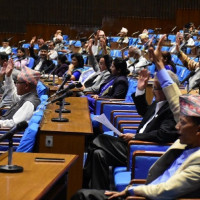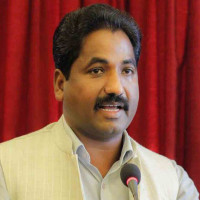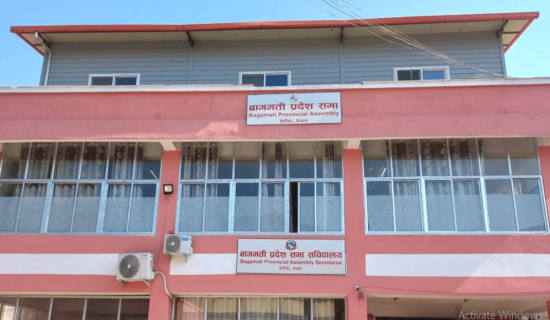- Wednesday, 2 April 2025
Prepare Students For Real World
With the increasing number of students reporting their qualms about not having been prepared enough by their degrees for the “real world”, perhaps it is apt to ask: What is the Nepali education system preparing Nepal’s students for? The answer seems diffused under the weight of politics, poor educational planning, and an ever-diminishing job pool.
The present educational system of the bachelor’s levels seems to have been designed with no specific goal in mind. Courses contain more content than can be taught expertly by the teacher in the prescribed credit hours or do not contain enough content to challenge the students. The prescribed content fails to cover the skills necessary to compete in a job market, and the exam structure cannot aid in enhancing the critical thinking skills of the students. In a system designed to promote rote learning, there is little to no hope for aspiring students. Students are made to cram the course content throughout their class times and to regurgitate the same content onto their exam sheets.
Furthermore, students exit their degrees with little to no relevant market skills. This is starkly evident in the case of IT degrees — students share that they gain little to no actual applicable skills from the course itself and that the present course is widely off the mark from the market demands. This turns out to be a nightmare for the students. They have to study and prepare themselves for two different things at once: one, to gain a certificate, and the other, to learn the skills necessary to make themselves stand out from other competitors in the job market.
Other degrees in business, accounting, humanities and social sciences, hospitality management and agriculture have similar problems. Even if an argument can be made that the present courses are enough for entry-level jobs, it collapses under the reality of the job market. Students spend months searching for jobs in their sector of study, only to end up hopeless and take any jobs available, which in most cases does not coincide with their area of study.
It seems futile to spend years of one’s life studying one subject only to end up working in a different area. Every year, there are fewer and fewer public service jobs available, the private sector is more saturated, and the quality of jobs is deteriorating. Despite all this, the concerned authority seems uninterested in reforming the existing system.
Taking all this into context, the reason behind the exodus of Nepali students appears obvious - a trend highlighted by the increasing number of students preferring to pursue their bachelor's abroad. Besides, students fear for their future job prospects and, as humans, are inclined to choose the safer option. Yes, the grass is always greener on the other side, but when the grass beneath one's feet is parched and shows no sign of resuscitating, one cannot help but believe the grass is at least somewhat greener on the other side.

















